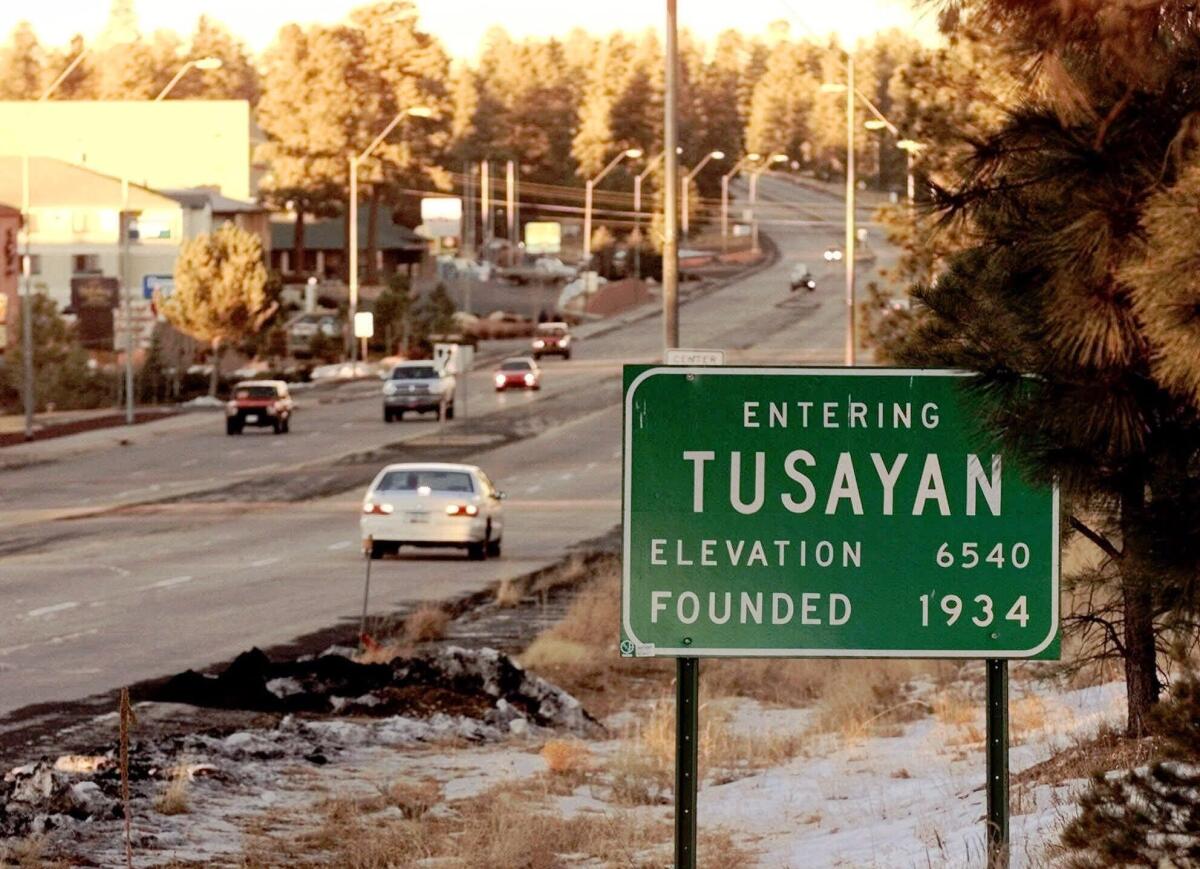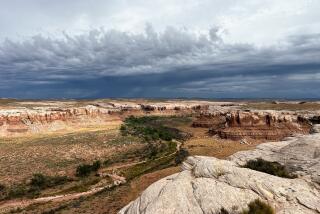Federal authorities reject plan for development with 2,200 homes near Grand Canyon

The National Park Service says a proposed development near the Grand Canyon in Tusayan, Ariz., would have “untold impact” on parklands.
A years-long effort to turn a tiny town near the south rim of Grand Canyon National Park into the site of 2,200 new homes and a sprawling commercial area was rejected Friday by federal officials. They cited threats to the area’s fragile water supply and other environmental concerns but also remarkably widespread opposition reflected in tens of thousands of public comments.
“I have determined that the Tusayan proposal is deeply controversial, is opposed by local and national communities, would stress local and park infrastructure, and have untold impacts to the surrounding tribal and National Park lands,” Heather Provencio, the supervisor of Kaibab National Forest, wrote in a letter to Craig Sanderson, the mayor of Tusayan, Ariz.
------------
FOR THE RECORD
March 5, 6:04 p.m.: In an earlier version of this post, the headline incorrectly stated that the National Park Service rejected the development proposal. The U.S. Forest Service made the decision. The earlier version also incorrectly stated that the development was planned west of Tusayan, Ariz. It would have been east of the town.
------------
For more than two decades, the Stilo Corp., a development group with backing in Italy, has sought ways to turn Tusayan, which has fewer than 600 residents, into a destination adjacent to Grand Canyon National Park.
See the most-read stories this hour >>
Developers bought private land within the forest and worked to expand their influence by winning incorporation of Tusayan as a municipality and electing officials who work for the development. They argued that the housing would help meet a shortage in the area and that development would create jobs. But for their project to work, they needed permission to expand roads and make other changes throughout the Kaibab. That provided opponents a window to fight — and fight they did.
In her letter, Provencio said the U.S. Forest Service initially “received 2,447 unique comment letters, 85,693 form letters, two petitions with 105,698 signatures, and 86 other comments.” It later received 35,000 additional letters.
“The vast majority of commenters opposed the Forest Service authorizing the proposed roads and infrastructure,” she wrote.
NEWSLETTER: Get the day’s top headlines from Times Editor Davan Maharaj >>
In 2015, more than 5.5 million people visited Grand Canyon National Park, second only to Great Smoky Mountains National Park.
The decision was a major victory for conservation groups — and the National Park Service, which also opposed the development. Kevin Dahl, the Arizona program manager of the National Parks Conservation Assn., said his group learned Thursday that a decision was coming but not what it would be, prompting it to prepare various responses.
“We got to send out the good one,” he said.
Dahl noted that a separate development plan nearby also has been halted. Several miles east of Tusayan, developers have proposed building a resort hotel on land owned by the Navajo Nation and a gondola that would ferry tourists to the canyon floor.
The idea had the support of some tribal leaders in the past, but it has been stalled by newly elected leaders and tribal members who say it would threaten a sacred area.
Dahl said he was relieved that both projects appeared stopped, at least for now.
“You almost never completely defeat a crazy idea,” he said. “Because it will come back.”
For news on the environment follow @yardleyLAT on Twitter.
ALSO
Lopez: Power grab topples another defender of California’s environment
Stalking wildflowers in the Anza-Borrego desert to forecast the Big Bloom
Grizzly bears are rebounding in Yellowstone. Should hunting be allowed to keep numbers in check?
More to Read
Sign up for Essential California
The most important California stories and recommendations in your inbox every morning.
You may occasionally receive promotional content from the Los Angeles Times.











